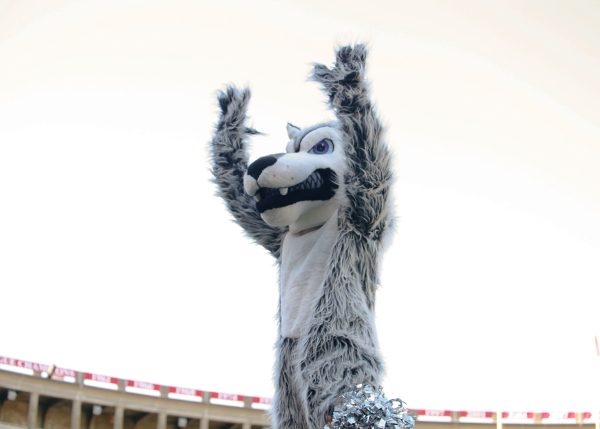BLS Women Make Waves in Sailing
Sailing at Boston Latin School is a co-ed sport, in which athletes sail in races that require dedication, skill and cooperation. The BLS team is extremely hard-working, placing at the top of their division for team racing and fourth in the state for fleet racing. The sailing team, however, still has goals they have yet to reach in terms of gender equality.
The team consists largely of boys, with only six women on the whole varsity team of 21. Captain Dorothy Russell (II) shares, “Honestly, I was a little overwhelmed at the first day of tryouts due to the lack of women trying out.”
To further the inequality, boys usually hold the positions of power on the boats. Of the two roles on a boat, the skipper (captain) and the crew, boys are the majority of the skippers. This reflects the national demographics, with 90 percent of all U.S. skippers being male. It is rare to find a woman skippering, even in professional sporting events.
Although changes are also being made at the professional level to try and diversify sailing teams, women are often talked down to and face sexist remarks while on the water. A survey reaching over 75 U.S. counties found that 80 percent of female respondents and 56 percent of male respondents believe that gender imbalance in the sport is an issue.
Yet, the girls of the BLS sailing team do not let this intimidate them. Ava MacKinnon (IV) states, “I like being a part of a male-dominated sport as a woman, because it makes me feel like I am paving the way for a sport for women in a male-dominated field.”
This year, the sailing team is looking to support their female athletes and break down gender norms with the addition of women-only regattas.
When asked about her opinion on the addition of the women’s regatta, MacKinnon shares, “I’ve never heard of it before this year. It is definitely a new thing. And I like it, but it does feel more segregated, and the women are at the women regatta so we have to send all the men to one regatta that is a co-ed regatta.”
Despite this potential downside, she adds, “I do feel like that helps women be a part of the sport,” bringing up an important point about how they promote inclusion and equal representation. With such a limited selection of role models at the professional level within this sport for women, these women’s regattas are all the more important.
They give the women a chance to show their skills that may have otherwise gone unnoticed. These regattas create a demand for female skippers, and force school sailing teams to foster the skills of their female sailors in a more well-rounded manner, not just allowing them to be written off singularly as crew. Even if the separation could be a negative aspect, the sailing community’s efforts to support its marginalized female members is a net positive.
In this way, the team is making strides to welcome girls into their sport. Although there is a long way to go, there is hope for a more diversely gendered version of the sailing team.
Sailing Head Coach Jesse Hamilton says that the girls “are a solid hardworking bunch and are improving every day” and that “they are a huge part of our team’s success this season.”
On the BLS sailing team, the majority of the problem is just lack of numbers. Yet, the sport shows clear promise to become more open to women. In tandem with the work being done to create more women’s regattas, the BLS sailing team will continue to challenge not only the wind, waves and competition, but the present gender gap as well.






